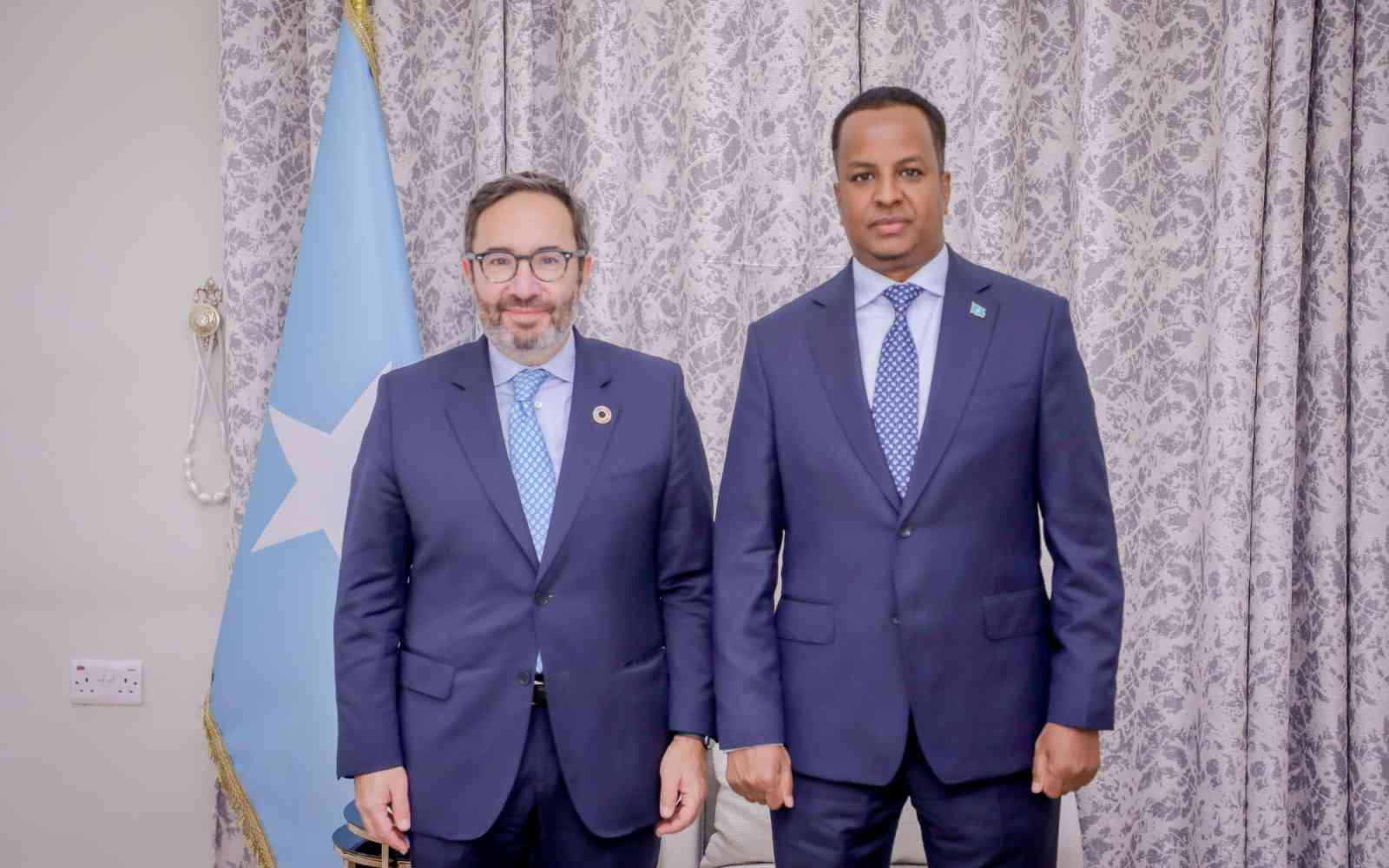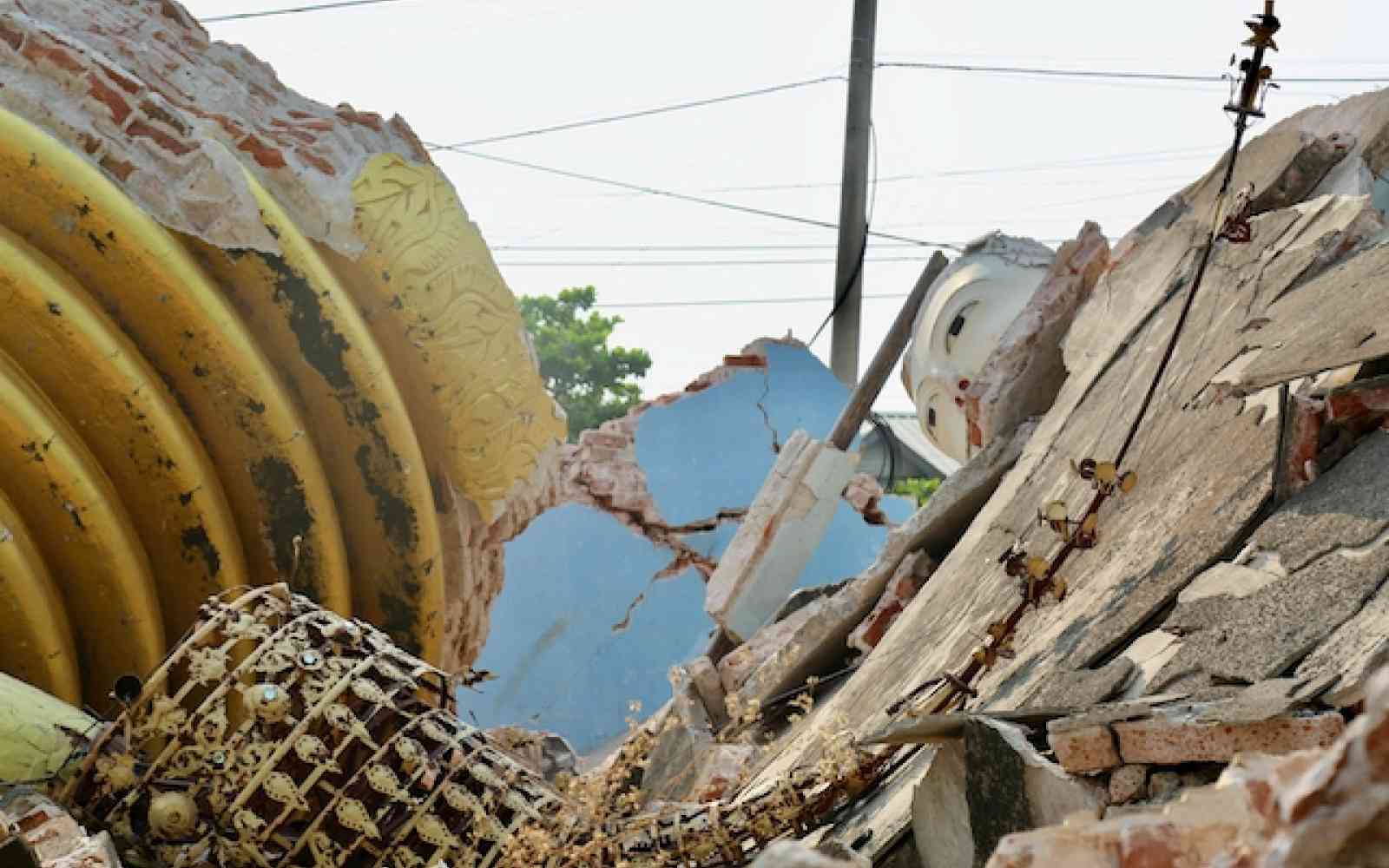The United Nations Office for Project Services (UNOPS)

Help from the people of Japan
Over the years, the people of Japan have supported stability in fragile states around the world.
The Government of Japan has been a longstanding partner of UNOPS, funding projects throughout Asia, Africa and the Middle East.
With a focus on constructing and rehabilitating infrastructure in fragile environments, and providing humanitarian assistance, Japan's support has helped UNOPS build better lives for people in need.
Here are just a few of these stories.

Improving access to social services in Afghanistan
In Chaghcharan, Afghanistan, poor road conditions – unpaved and damaged from flooding and erosion – have long prevented residents from accessing health services, education and markets. With a contribution from the Government of Japan, UNOPS constructed 10.7 kilometres of roads.
The completed roads have given residents renewed access to livelihood opportunities, easing daily hardships and aiding the province's economic development.
Before the roads were built, local farmer Khan Mohammad found it more difficult to bring crops into the city. "It's easier now to bring my crops, and I earn more money for my family," he said.

Streetlamps were installed along the roads to improve safety. Taking into account Chaghcharan’s need for sustainable, environmentally safe energy, solar-powered lights were used. Besides increasing visibility for drivers at night, these lamps serve a secondary purpose: enabling local students to study.
Increasing access to healthcare for displaced people in Iraq
Iraq is home to more than 3 million Internally Displaced Persons (IDPs) – that's nearly 10% of the country's population. Many have fled to the Kurdistan Region of Iraq, along with many Syrian refugees who have come to Iraq seeking safety.
To support the emergency response, UNOPS purchased 20 ambulances on behalf of the Government of Japan in 2015, which were donated to the Kurdistan Regional Government's Bureau for Migration and Displacement.
"We highly value this donation as it addresses the needs of the Kurdistan Region of Iraq for ambulances, which could save the lives of thousands of women, men and children in the IDP camps," said Mr. Shokr Yaseen, Director General of the Bureau.
Mingkaman Port: Providing humanitarian supplies

As the momentum for peace gains steam, Japan hopes that the port serves as a key driver for economic vibrancy in South Sudan,
Mingkaman is one of South Sudan's largest spontaneous settlements. More than 100,000 people here are registered IDPs, having fled fighting in nearby regions.
A lack of road transportation infrastructure, especially during the rainy season, has hampered humanitarian access. People in Mingkaman have faced severe food shortages and an increased risk of infectious diseases.
In addition, arriving in Mingkaman has long been a difficult journey, with the riverbed serving as a make-shift drop-off point for people and their goods.
To address this, in 2015 the Government of Japan funded the construction of a river port on the White Nile. The new port provides off-loading facilities and storage space, enabling aid agencies to deliver much-needed humanitarian material, including food and nutrition supplies.
"The inauguration of Mingkaman river port is the embodiment of Japan's answers to South Sudan's various needs, covering humanitarian relief for the displaced while installing basic infrastructure upon which the country's future will be built by the locals," said the Ambassador of Japan to the Republic of South Sudan, H.E. Masahiko Kiya.
Read more
Access to safe water in Darfur

The Darfur region faces many challenges, including severe water shortage. Ongoing population growth in peri-urban areas has increased pressure on the water supply and infrastructure.
To improve water security for residents in West and East Darfur, Japan funded an emergency intervention project.
In East Darfur, water facilities – including separate water stations for people and animals to prevent water-borne diseases, as well as surrounding walls – and six damaged water yards were rehabilitated, all for the benefit of 50,000 people.
In West Darfur, a recently built water yard – connected to 18 new public water stations – is providing relief for around 20,000 people.
Supporting stability in Somalia

The lack of functioning civil security forces has been a major barrier to peace and stability in Somalia. To address this, the Government of Japan is funding a project that provides financial stipends to some 7,000 federal police officers in the Somali Police Force.
The role of the police force is crucial in Somalia. It not only protects citizens, but provides a safer environment for international cooperation, which is helping the country’s reconstruction process.
An electronic payment system is also being developed, to establish an efficient and accountable method of supporting the payment of stipends. Ultimately, the project will help to tackle one of the country's biggest challenges: Improving security.
Support from Japan
UNOPS provides project management, procurement and infrastructure services on behalf of the Government of Japan. These services support the delivery of a wide variety of aid and development projects in some of the most challenging environments around the world. These projects range from building infrastructure in conflict-affected areas, with a focus on community benefits, to helping host governments cope with the influx of refugees.















